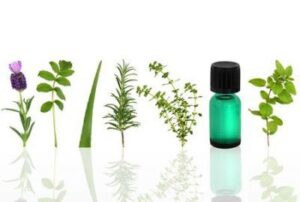* Black Cohash is likely the most well known and commonly used herbal remedy for hot flashes.
* Oregon grape and dandelion root have also been credited with easing hot flashes in some women.
* Vitamin C, which much of can be found in the garden at home, is also considered to be effective in reducing hot flashes.
* Vitamin A, aloe vera and calendula are reported to help to ease the symptoms of vaginal dryness.
* Vitamin E can also be useful for helping with vaginal dryness, as well as easing hot flashes for many women.
* Chinese angelica, or “dong quai” is used to try balancing the postmenopausal hormones, and it can also be used to ease the symptoms of hot flashes.
* Chamomille and valerian tea are useful for symptoms of insomnia, if taken about an hour before bedtime.
* Evening primrose, borage, and currant seed oil all contain an essential fatty acid called gamma-linolenic acid, which is believed to help ease some of their troubling symptoms during menopause.
* Soy has been effective in treating hot flashes for some women.
* Some studies indicate that wild yam may be useful for easing some symptoms since they contain a substance that is similar to the female progesterone hormone. There is still research into how effective it really is, as the substance does not appear to be able to be converted into the needed hormone in the body.
* Lignans, which can be found in flax, whole grains and legumes, Are able to act as phytoestrogens – which are sometimes referred to as “dietary estrogens”. They are naturally occurring compounds which have similar properties to estrogen.
It is always important to remember to consult a physician before starting to take any natural remedies for menopause, because some of them may be contra-indicated for women with certain conditions. They can also interact with other medicine or treatments, and can have potential adverse effects on the woman’s health. But, the benefits of these natural treatments if used properly are well known, and can be an effective means of managing menopause symptoms for many women.

